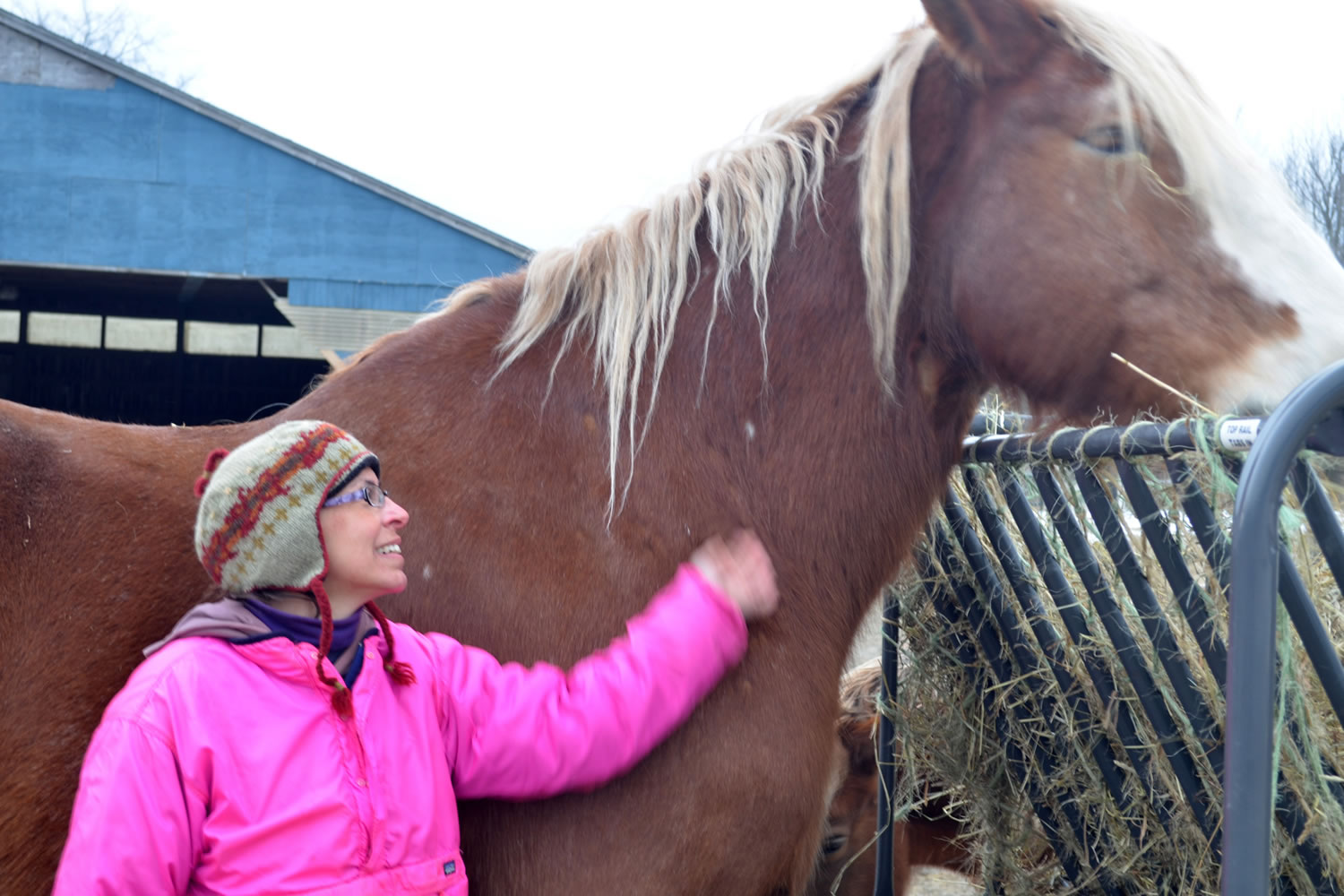Willie Wonka, a 20-year-old mixture of Arab, Shetland, Haflinger and Morgan, came to Blue Rider Stables in 1997 with a thyroid condition and other ailments.
He was fortunate to find a place where animals and humans are treated with compassion and respect. Willie’s doing fine, and beyond that he’s the stable’s “most reliable pony,” says Executive Director Christine Sierau.
Reliability here means a horse well-suited to therapeutic riding for two-legged animals: Blue Rider Stables helps people with disabilities to acquire basic equestrian skills such as balance and control, developing confidence and self-esteem in the process.
“Any disability that you can think of has probably been on a horse here,” says Sierau, including those who were blind, deaf or autistic.
There have also been cases of Asperger’s, Huntington’s disease, Down syndrome, dyslexia, arthritis, substance abuse and a host of other physical and emotional issues. Blue Rider doesn’t claim to cure anything, and the staff doesn’t harp on the illness.
“Our focus is on the individual, the person,” says Sierau, “not the diagnosis. ‘Holistic’ is a very good word for us. We don’t look at the disability. We look at the whole person.”
Founded in 1991, the nonprofit sits on 12 acres of pasture and woodlands of pine, cedar and apple trees in the Berkshires in South Egremont, Mass. It has an indoor riding circle, used for therapy in foul weather, that it hopes to expand.
The horses’ grazing space expands to 28 acres through generous neighbors opening their land. The operation depends on individual donations.
Sierau doesn’t refer to Blue Rider as an “animal rescue,” as that might encourage people to drop off unwanted animals anonymously. These days, 13 horses and three donkeys accommodate students ranging from 18 months to 82 years. An Icelandic cross pony ambles about the paddock with a Tennessee walking horse. An Appaloosa gelding munches hay alongside a Belgian draft horse. Each has a biography on the stable’s website.
“All of our horses come from places where they needed a second chance in life,” says Sierau. “I strongly believe that these horses coming here is as much their doing as ours. They have a purpose, a life, a job.”
Many come from lives of neglect. They were underfed, kept on a short tether or left languishing. Sometimes a horse is orphaned when its owner dies.
The animals don’t wear saddles or horseshoes (unless they need them for podiatric reasons). “We don’t use bits,” says staff member Wendy Fulco.
The barns aren’t divided into individual stalls to avoid isolating these very social animals. Some of the horses with infirmities have been treated by chiropractors or other alternative veterinary care.
Fulco herself has been treated here for neck pain. “When you ride bareback, you have to relax your legs, your bottom.” She describes the relief from the tension and stiffness as transcendent. “It was an emotional and a spiritual balancing. It was just amazing.”



